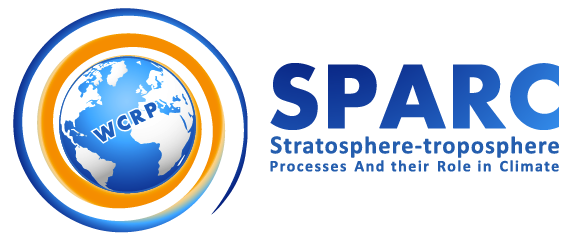|
Program
1. Outline
- GA programme outline (current version)
Please note this is a version as of 20 (Thu) September 2018, very close to the final one, and the final version will be displayed by 27 (Thu) after taking the last changes.
The color code for the core-time of poster sessions for group A(red), B(green), C(blue), D(pink), E(mint) and F(purple) are indicated at the bottom of "Floor plan Poster room" on page 9 of the pdf file for Block I (Mon-Tue), and on page 10 for Block II (Wed-Fri).
You can find core-time for each presentation on the list of each Theme and session from page 11 to 26 of the pdf file, or A to Z list of all presentations from page 27 to 33.
- Side meetings
We also have side meetings during SPARC GA, and a time table for these can be found here. You can contact the correspnding person on the list for further details of each side meeting, and also please stay tuned for their announcement.2. Abstract E-booklet
- GA programme/abstract e-booklet (first draft)
A draft of the e-booklet can be downloaded from this Webpage (password required). It contains the full list of oral and poster presentations in each Theme and session, together with all the pdf files of submitted abstracts which are linked to the full list.3. Themes of the General Assembly
- Connections of Atmospheric Composition and Chemistry to Weather and Climate
Atmospheric composition is closely coupled to weather and climate, with gases and particles affecting the radiative balance while being transported around by atmospheric motions. Major areas of interest at the 2018 SPARC General Assembly include short-lived climate forcers, the transport of pollution and composition associated with monsoons and strong convection, stratospheric ozone depletion and recovery, the composition of the upper troposphere and lower stratosphere (e.g., water vapour, ozone, aerosols and cirrus), the impacts of stratospheric aerosols and volcanic eruptions, and the anticipated changes in transport processes and stratosphere-troposphere exchange in a changing climate. These issues will be discussed in the light of the exciting new science topics emerging in the SPARC programme.Co-chairs:Paul Young (Lancaster Univ., UK) & Don Wuebbles (Univ. Illinois, USA)
- Climate Prediction from Weeks to Decades
Credible climate predictions on a range of timescales from sub-seasonal and seasonal to decadal and centennial are essential when considering how society can respond to the challenges of changing climate. Climate and weather models are being developed to provide consistent predictions across these scales. New results will be presented and discussed on research in this area including, but not limited to, the mechanisms and sources of predictability of regional climate, the role of model errors in limiting predictive skill, and the benefits of resolving the stratosphere for weather and climate prediction.Co-chairs:Seok-Woo Son (SNU, Rep. of Korea) & Tianjun Zhou (CAS, China)
- Role of Atmospheric Dynamics for Climate Variability and Change
Atmospheric dynamics are central in determining the response of the surface climate to internal and external forcings. Important topics for this General Assembly include teleconnections and vertical coupling, interactions across timescales from days to decades, the dynamics of storm tracks, annular modes, tropical expansion, and Rossby waves, changes in extreme events, the different responses of dynamical and thermodynamical processes to climate change, and the coupling between moisture, clouds and circulation.Co-chairs:Olivia Martius (Univ. of Bern, Switzerland) & Shigeo Yoden (Kyoto Univ., Japan)
- Atmospheric Impacts and Interactions Related to Tropical Processes
The tropics plays a central role in the global atmosphere, comprising nearly half of its volume and receiving most of the incoming solar radiation. It is a growing area of research and a wide range of issues are relevant to the General Assembly. These include the connections between stratospheric variability and tropical convection, interactions with ENSO and QBO, connections between the tropical tropopause layer and climate, tropical waves and convection, and tropical convective transport and its interactions with chemistry, and cirrus clouds.Co-chairs:Laura Pan (NCAR, USA) & Yoshio Kawatani (JAMSTEC, Japan)
- Advances in Observation and Reanalysis Datasets
Our understanding of changes in climate and atmospheric composition relies on analyses of high quality, long-term observations. A major responsibility of SPARC has been to promote on-going improvements in the observational data sets, coupled with developing new analyses and new understanding. Multi-instrument records are increasingly important for all essential climate variables including composition (water vapour, ozone, aerosols) and the new meteorological reanalyses. Rigorous approaches to their production and analysis are required. These remain topics of central interest in this General Assembly which will also provide a forum to discuss future observational needs.Co-chairs:Masatomo Fujiwara (Hokkaido Univ., Japan) & Masato Shiotani (Kyoto Univ., Japan)
- SPARC Science for Society
SPARC's prime responsibility is to promote international activities in fundamental atmospheric research related to climate. In order to ensure that maximum benefit is derived from this research, it is important to develop good communication with SPARC's stakeholders. These include regional climate services, assessing the potential needs of the stakeholders (e.g. agriculture, water resources, energy and policy), and evaluating climate risk evaluations for decision-makers.Co-chairs:Harry Hendon (BoM, Australia) & Amanda Maycock (Univ. of Leeds, UK)



